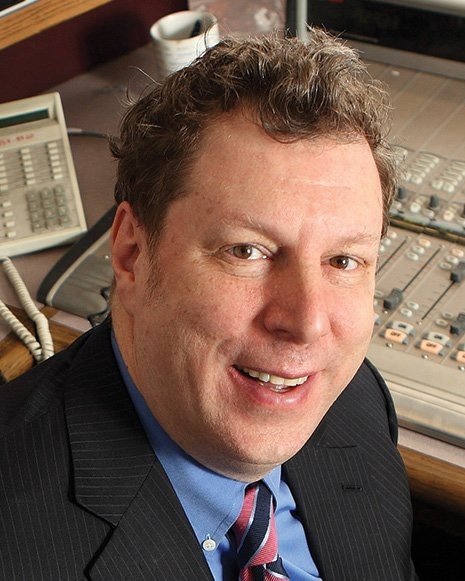Columbia College | Columbia University in the City of New York
Phil Schaap ’73, Noted Jazz Historian, Programmer and Educator

“He knows more about us than we know about ourselves,” jazz drummer and bebop pioneer Max Roach said of Schaap in a 2001 article in The New York Times. David Remnick, editor of The New Yorker, wrote in a 2008 profile of Schaap, “In the capital of jazz, he is its most passionate and voluble fan.”
Schaap, who was renowned for his encyclopedic memory and passion for bebop saxophonist Charlie Parker, died on September 7, 2021. The historian and longtime radio host was recognized as a Jazz Master by the National Endowment of the Arts (NEA) earlier in 2021; during the course of his career he was awarded six Grammys, as a producer and for liner notes.
Born on April 8, 1951, Schaap grew up steeped in jazz. His father, Wally ’37, was a translator for French jazz scholars, and his mother, Marjorie, was a librarian and a classically trained pianist; they lived in Hollis, Queens, the so-called bedroom community of jazz. As Schaap told CCT in the Fall 2020 feature “Radio Days,” “The pioneers of jazz were still alive then, and I had known them from literally infancy.”
Schaap was instrumental in growing WKCR from a student radio station into a celebrated jazz destination. Recalling a staff meeting in fall 1970, Schaap said, “It became clear that we could create something, on our own initiative, that would be broadcast to New York City and the metropolitan region. We decided to pursue alternative programming — we were going to present culture, primarily music, that had no commercial following; music that we thought needed to be heard.”
His two longest-running shows, Bird Flight and Traditions in Swing, had been on the air since 1981. Along the way, he helped to establish many of the station’s signature offerings, including music marathons that dedicated 24 hours or more to the oeuvre of a single artist, as well as live performances and musician interviews.
“Phil was so many things: a tireless evangelist for jazz and its artists, a virtuoso in all areas of radio broadcasting and the recording arts, a teacher, a historian, a meticulous craftsman, an obsessive in the extreme,” recalled Jamie Katz ’72, BUS’80, WKCR’s jazz director 1969–70, who assured Schaap he would get airtime to play the music he loved. “His contributions at WKCR are legendary, not only as a program host, but also as a fundraiser, producer, engineer, archivist, mentor and beacon of integrity who was the very soul of the station for half a century, all of it pro bono.”
A self-described “jazz activist,” Schaap managed The Countsmen, featuring members of Count Basie’s Orchestra, 1972–91. He also programmed live music for The West End and was a curator for Jazz at Lincoln Center, where he created the educational program Swing University. He taught at Columbia, Princeton, Rutgers, the Manhattan School of Music, Juilliard and Jazz at Lincoln Center, and was an audio restoration specialist.
“Phil Schaap was a person of deep integrity, conviction and purpose,” renowned trumpeter and jazz educator Wynton Marsalis said in the New Yorker profile, “and that purpose was to spread the gospel of jazz.”
“Phil’s contribution to the world’s understanding of the music known as jazz must never be undervalued,” said Sharif Abdus-Salaam ’74, who worked with Schaap at WKCR and became a lifelong friend. “He worked tirelessly and unselfishly to share with those who would listen, the knowledge he gleaned from research and interviews with many of the masters of our beloved art form. He constantly reminded me that the work to increase jazz awareness and appreciation must continue.”
Last spring, Schaap received the A.B. Spellman NEA Jazz Masters Fellowship for Jazz Advocacy, which annually goes to a figure whose contribution occurs off the bandstand. In an NEA interview, Schaap discussed his work of building audiences: “There’s a lot to teach, but all jazz education is performance oriented. Well, who’s going to train the listeners? I’ve spent a lifetime trying. I’m trying to create an audience for the musicians. That’s my job. ... I teach listening.”
Schaap is survived by his partner of 17 years, Susan Shaffer.
— Alex Sachare ’71
Issue Contents
Published three times a year by Columbia College for alumni, students, faculty, parents and friends.
Columbia Alumni Center
622 W. 113th St., MC 4530, 6th Fl.
New York, NY 10025
212-851-7852
cct@columbia.edu
Columbia Alumni Center
622 W. 113th St., MC 4530, 4th Fl.
New York, NY 10025
212-851-7488
ccalumni@columbia.edu

